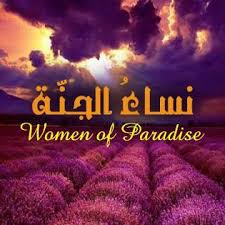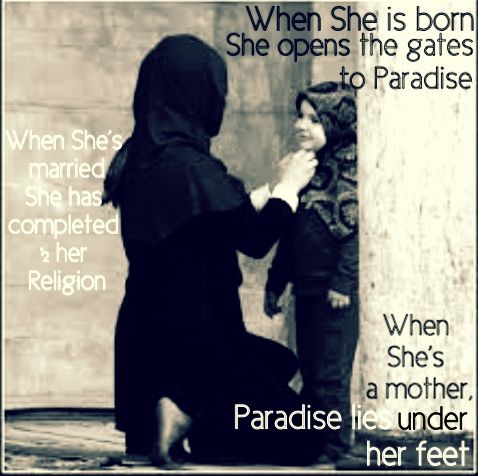Khadeejah bint Khuwaylid(R)

- She was born in the year 68 BH to Khuwaylid b. Asad and Faatimah bint. Za'idah. She was raised on praiseworthy characteristics and was well-known and praised for her intelligence, chastity, and prudence until people began to call her "Taahirah" or "the pure one." She was a successful businesswoman, who achieved her wealth through hiring men to take it on merchant trips to sell. She was first married to Abu Halah b. Zurarah of the Banu Tameem and was the mother of two sons, one of whom died at the Battle of al-Jamal, fighting on the side of 'Ali.
It reached her that the Messenger of Allah(S) was known for his truthfulness and generosity. One day Abu Taalib said to his nephew: "I am a man without wealth, and times have become tough on us, and these disagreeable years harass us, and we have neither material possessions nor merchandise, and this [woman] Khadeejah sends men from among your people to do business with her wealth and they gain profit. So if she comes to you, convey to her your honesty.
WOMEN OF PARADISE
 Part 1: 'The Black Woman'
Part 1: 'The Black Woman'
Paradise is for believing men and women.
We often hear speakers in Friday prayer or in admonitions talking about Paradise and all of us find our hearts, minds and thoughts tuned on to that 'frequency'. However, majority of the speakers talk about Paradise as if it were a house for men only. Reality is not like that. Paradise is for the believing men and women. The only price for it is sound belief in Allaah, love of Allaah and His Messenger salla Allaahu alaihi wa sallam, and obedience to Allaah and His Messenger salla Allaahu alaihi wa sallam.
In what follows are the glad tidings given by the Messenger of Allaah salla Allaahu alaihi wa sallam, to some of the women among his companions.
* Narrated 'Aisha radhiya Allaahu anha: I did not feel jealous of any of the wives of the Prophet as much as I did of Khadija (although) she died before he married me, for I often heard him mentioning her, and Allaah had told him to give her the good tidings that she would have a palace of Qasab (i.e. pipes of precious stones and pearls in Paradise), and whenever he slaughtered a sheep, he would send her women-friends a good share of it. [Sahih al-Bukhari]
Women in Islam.
 O ppressed, inferior, and unequal – for many people, these are the first words that come to mind when thinking about women in Islam. These stereotypes confuse Islam with cultural practices and fail to recognize that Islam has empowered women with the most progressive rights since the 7th century. In Islam, women are not inferior or unequal to men. This brochure presents the actual teachings of Islam regarding the rights, roles, and responsibilities of women, with a special focus on gender equality in Islam
O ppressed, inferior, and unequal – for many people, these are the first words that come to mind when thinking about women in Islam. These stereotypes confuse Islam with cultural practices and fail to recognize that Islam has empowered women with the most progressive rights since the 7th century. In Islam, women are not inferior or unequal to men. This brochure presents the actual teachings of Islam regarding the rights, roles, and responsibilities of women, with a special focus on gender equality in Islam
At a time when female children were buried alive inArabiaand women were considered transferable property, Islam honored women in society by elevating them and protecting them with unprecedented rights. Islam gave women the right to education, to marry someone of their choice, to retain their identity after marriage, to divorce, to work, to own and sell property, to seek protection by the law, to vote, and to participate in civic and political engagement.
In 610 C.E., God began to reveal the message of Islam to Prophet Muhammad, peace be upon him (pbuh), inMecca. Muhammad (pbuh) called people towards the belief in one God and encouraged them to be just and merciful to one another. In reforming the pagan Arab society, he particularly transformed their mindset regarding the treatment of women. Islam abolished the practice of killing female children and raised the stature of women in society to one of dignity, esteem, and privilege.
Visitors Counter
 | Today | 115 |
 | Yesterday | 0 |
 | This_Week | 3170 |
 | This_Month | 115 |
 | All_Days | 425842 |

